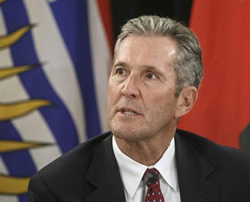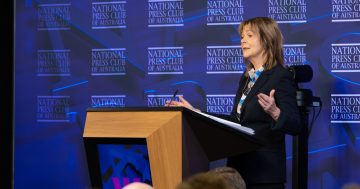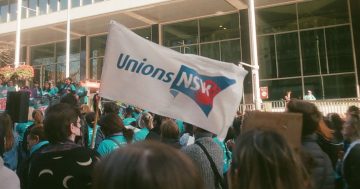 The Premier of Manitoba has delivered an ultimatum to the Canadian Province’s Public Service union — accept reduced work-weeks for non-essential employees or face mass lay-offs of staff during the pandemic crisis.
The Premier of Manitoba has delivered an ultimatum to the Canadian Province’s Public Service union — accept reduced work-weeks for non-essential employees or face mass lay-offs of staff during the pandemic crisis.
Brian Pallister (pictured) said the Provincial Government would cover the salaries of front-line healthcare workers who miss work for 14 days to self-isolate if they have been exposed to COVID-19.
The reduced workweek is an “all hands on deck approach to fighting COVID-19”, Mr Pallister said.
The news was a jolt for unions that have been at loggerheads with the Government since it was elected four years ago.
President of the Manitoba Government and General Employees Union, Michelle Gawronsky said the Government had told it the only way to avoid significant lay-offs would be to voluntarily enter into work-sharing agreements where non-essential staff would have their work-week reduced to as little as two days per week.
She was told affected workers would get Employment Insurance (EI) for the lost work days. For those who earned less than $C54,000 ($A60,200) annually that would mean keeping about 70 per cent of their pay and avoiding a lay-off.
“However, this will be possible only if the Federal Government agreed to make the Province eligible for the EI program, Ms Gawronsky said.
Mr Pallister told reporters the cuts were required in order to shift resources to where they were needed most — the healthcare system and fighting COVID-19.
He said the work reduction would be a temporary measure to get through an economic crisis brought on by the pandemic that had resulted in shrinking Provincial tax revenue, soaring healthcare costs and a projected $C5 billion ($A5.5 billion) deficit this year.
Manitoba may be the only jurisdiction to consider putting its Public Servants on to part-time EI.
In a survey of the nine other Provinces, the Governments of Saskatchewan, Alberta, British Columbia, Ontario, Quebec, New Brunswick and Newfoundland and Labrador said they were not exploring such a move.
The other Provinces did not respond. Of those who did, some said they were reallocating staff, and some had introduced hiring freezes.
Winnipeg, 17 April, 2020











